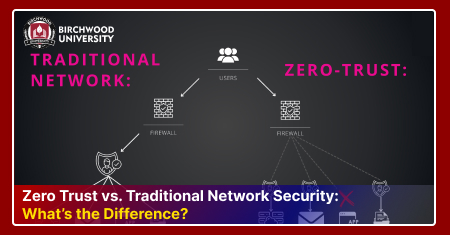Innovating with Insights: Master of Science in Data Science Unleashed
Feb 7, 2024In the digital era, data has emerged as precious as gold. Organizations are amassing vast troves of data, but unlocking its true potential requires skilled professionals who can translate raw numbers into actionable insights. This is where the Master of Science in Data Science (MSDS) program emerges as a powerful tool for innovation.
This blog delves into the exciting world of data science, exploring how a master of science in data science program can help students become game-changers in various industries. We'll unpack the key elements of the program, its impact on innovation, and the potential career paths that await graduates.
Demystifying the Power of Insights in Data Science:
Data science is an interdisciplinary field that blends statistics, computer science, domain knowledge, and problem-solving skills to extract meaningful patterns from data. It's not just about crunching numbers; it's about using those insights to solve real-world problems, optimize processes, and drive innovation.
Imagine a retail giant leveraging customer data to predict buying trends and personalize product recommendations. Or a healthcare provider using medical data to identify early signs of disease and personalize treatment plans. These are only a few instances of the industries in which data science is changing.
The Masters of Science in Data Science Advantage:
An MS in data science program equips individuals with the necessary skills and knowledge to navigate the complex world of data science. An overview of what to expect is provided here:
- Foundational Knowledge: Courses cover core areas like statistics, probability, linear algebra, calculus, and programming languages like Python and R.
- Data Wrangling and Manipulation: Learn how to collect, clean, and organize data from diverse sources.
- Statistical Modeling and Analysis: Master techniques like hypothesis testing, regression analysis, and machine learning algorithms to uncover hidden patterns.
- Big Data Technologies: Explore tools and frameworks like Hadoop, Spark, and cloud computing platforms to handle massive datasets.
- Communication and Visualization: Effectively communicate insights through storytelling and data visualization techniques.
Career Paths for Data Science Graduates
With an MS in Data Science degree, you'll be equipped to pursue a variety of exciting careers, including:
- Data Scientist: Analyze data, build models, and develop solutions to complex problems.
- Data Analyst: Clean, organize, and interpret data to inform business decisions.
- Machine Learning Engineer: Design, build, and deploy machine learning models.
- Data Visualization Specialist: Translate complex data into clear and compelling visuals.
- Business Intelligence Analyst: Use data to drive business strategy and decision-making.
Whatever, the data science specific career path you choose will depend on your interests, skills, and experience. But with a Master of Science in Data Science degree, you'll have the foundation and flexibility to explore various opportunities and make a significant impact in your chosen field.
Innovations in Data Science: A Glimpse of Tomorrow:
Data science is pushing boundaries in exciting new directions. Let's explore some of the most prominent innovations shaking up the field:
- Explainable AI (XAI): As AI models become more complex, understanding their decision-making processes becomes crucial. XAI techniques provide transparency, ensuring algorithms are fair and unbiased.
- Generative AI: This burgeoning field focuses on training models to create entirely new data, from realistic images and text to even scientific discoveries. The potential applications are vast, from personalized medicine to drug discovery.
- Federated Learning: This allows AI models to be trained on decentralized data while preserving privacy. This is vital for industries like healthcare, where sharing sensitive data is often restricted.
- Quantum Computing: While still in its early stages, quantum computing holds immense potential for data science. Its ability to handle complex calculations could revolutionize areas like materials science and financial modeling.
- MLOps and DataOps: Managing the lifecycle of machine learning models and data pipelines is crucial for real-world deployments. MLOps and DataOps practices ensure models are reliable, scalable, and maintainable.
How to Become a Data Scientist in 2024?
The vast array of innovations might seem daunting. The following important steps will put you on the right track to become a data scientist:
- Master the Fundamentals: A strong foundation in math, statistics, programming (Python and R are key), and domain knowledge is essential. Consider online courses, boot camps, or a degree program like a Master of Science in Data Science.
- Embrace Continuous Learning: Data science is constantly evolving, so commit to lifelong learning. Stay updated on new tools, libraries, and research through online resources, conferences, and communities.
- Sharpen Your Problem-Solving Skills: Think critically and creatively to translate business problems into data-driven solutions. To improve your skills, take part in competitions and hackathons.
- Refine Your Communication Skills: Effectively communicate your insights to both technical and non-technical audiences. Storytelling and data visualization are key tools in your arsenal.
- Build a Strong Portfolio: Showcase your skills by working on real-world projects, contributing to open-source projects, or building personal data science applications.
Impact of Data Science in Different Industries:
Remember the days of blockbuster drug discoveries happening by chance? Or waiting weeks for personalized financial advice? Data Science is no longer just a technical term, it's weaving its magic into our everyday lives, reshaping industries and impacting us all.
Imagine healthcare personalized: not just treating illnesses, but preventing them based on your unique biology and lifestyle. Imagine targeted drugs designed just for you or epidemics being vaccinated before they even spread.
The financial world is getting smarter too. Data science guards your money like a hawk, spotting fraudsters before they can act. It also helps you make the most of your hard-earned money, suggesting investments based on your goals and market trends.
Even governments are getting a data-driven makeover. Imagine policies based on real evidence, not just hunches, leading to a future brighter for everyone. Data science is even helping predict crime and manage disasters, keeping us all safer and more prepared.
It's not just about numbers and algorithms; it's about using data to unlock human potential and create a future where everyone benefits. So, the next time you see a doctor, open an app or walk into a store, remember, that data science is working its magic behind the scenes, making our lives a little bit better, one insightful whisper at a time.






